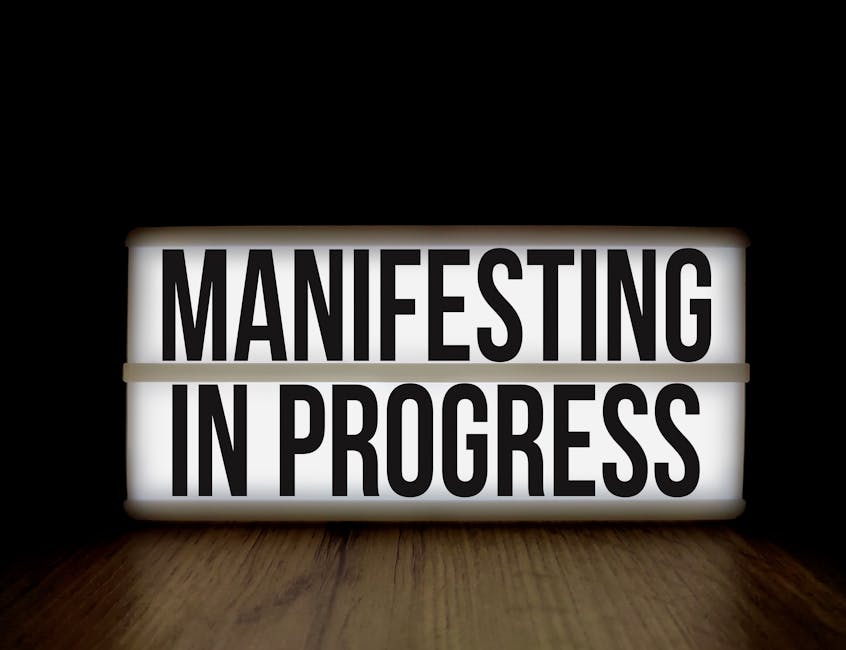Financial mindset is the foundation of every financial decision you make, shaping your relationship with money, your habits, and your long-term prosperity. At Self IQ, we believe that smarter growth leads to a stronger you, and mastering your financial mindset is the first step toward lasting wealth and well-being.
The Essence of a Financial Mindset

Photo by Swadesh Maharjan on Pexels
What exactly is a financial mindset? At its core, your financial mindset is a collection of beliefs, attitudes, and assumptions you hold about money. These internal narratives influence how you earn, spend, save, and invest. Whether you realize it or not, your financial mindset is the silent driver behind every money decision you make, from daily purchases to major life investments.
Financial mindset is not something you’re born with. It’s shaped by your upbringing, cultural background, education, and personal experiences. Perhaps you grew up in a household where money was always tight, instilling a scarcity mentality. Or maybe you witnessed financial abundance, leading to a more optimistic view of wealth. Regardless of your starting point, your financial mindset is not fixed—it can be transformed with awareness and intention.
Developing a healthy financial mindset is crucial because it impacts every aspect of your financial life. If you view money as a source of stress or shame, you may avoid dealing with your finances altogether, leading to poor outcomes. On the other hand, seeing money as a tool for growth empowers you to make smarter, more confident decisions. Your financial mindset is the lens through which you see opportunities, assess risks, and set goals.
Recognizing your current beliefs about money is the first step. Ask yourself: What stories do I tell myself about wealth? Do I believe I deserve financial success? Am I open to learning and changing my approach? By examining these questions honestly, you can begin to reshape your financial mindset and set yourself on the path to abundance.
How Your Financial Mindset Shapes Your Habits

Photo by Towfiqu barbhuiya on Pexels
Your financial mindset doesn’t just influence your thoughts—it directly shapes your daily habits. If you believe money is scarce and hard to come by, you might avoid investing or saving, fearing loss more than you value potential gain. Conversely, a mindset rooted in abundance and growth encourages proactive behaviors: budgeting, saving, investing, and seeking out opportunities for improvement.
Habits are the building blocks of your financial future. They are the small, consistent actions that compound over time to create significant results. For example, someone with a positive financial mindset is more likely to track expenses, set realistic budgets, and stick to their savings goals. Over time, these habits lead to greater financial security and freedom.
Negative financial mindsets can lead to self-defeating behaviors, such as impulse spending, chronic debt, or avoidance of financial planning. These patterns are often rooted in emotions like fear, guilt, or shame. The good news is that by consciously shifting your mindset, you can break these cycles and replace them with healthier habits.
Start by identifying one or two small actions you can take each day to reinforce a positive financial mindset. This might include reviewing your bank statements, setting up automatic transfers to savings, or simply reflecting on what you’re grateful for financially. Over time, these habits will rewire your brain to approach money with confidence and clarity.
Scarcity vs. Abundance: The Mindset Shift That Changes Everything

One of the most profound shifts you can make is moving from a scarcity mindset to an abundance mindset. A scarcity mindset is characterized by the belief that resources are limited, leading to fear, competition, and anxiety about money. This mindset often results in hoarding, reluctance to invest, and constant worry about the future.
In contrast, an abundance mindset is rooted in the belief that there are enough resources and opportunities for everyone. People with an abundance mindset approach finances with optimism, gratitude, and a willingness to take calculated risks. They see setbacks as learning experiences and are open to new opportunities for growth.
Gratitude is a powerful tool in cultivating an abundance mindset. By appreciating what you have, you shift your focus from lack to possibility. This doesn’t mean ignoring financial challenges, but rather approaching them with resilience and a belief in your ability to overcome them.
To foster an abundance mindset, practice reframing negative thoughts about money. Instead of saying, “I’ll never have enough,” try, “I’m learning to create more opportunities for myself.” Surround yourself with positive influences—books, podcasts, and mentors who inspire growth. Over time, this mindset shift will empower you to make smarter, more courageous financial decisions.
Building Resilience: Overcoming Financial Setbacks

Photo by Worldspectrum on Pexels
Financial setbacks are inevitable, whether it’s an unexpected expense, job loss, or market downturn. Your financial mindset determines how you respond to these challenges. Those with a fixed mindset may feel defeated and give up, while those with a growth mindset see setbacks as opportunities to learn and adapt.
Resilience is the ability to bounce back from adversity. In the context of finances, it means having the mental and emotional strength to weather storms and keep moving forward. Building resilience starts with accepting that setbacks are a natural part of the journey. Instead of dwelling on mistakes, focus on what you can control: your actions, your attitude, and your willingness to learn.
Developing a resilient financial mindset involves several key practices. First, maintain an emergency fund to provide a safety net during tough times. Second, view failures as feedback rather than personal shortcomings. What can you learn from the experience? How can you adjust your strategy moving forward? Finally, seek support from trusted friends, family, or financial professionals who can offer guidance and encouragement.
Remember, resilience isn’t about avoiding difficulties—it’s about facing them with courage and determination. By strengthening your financial mindset, you’ll be better equipped to handle whatever comes your way and emerge stronger on the other side.
Financial Education: The Pathway to Empowerment

Photo by maitree rimthong on Pexels
Continuous learning is at the heart of a strong financial mindset. The world of finance is complex and ever-changing, but those who commit to ongoing education gain a significant advantage. A growth-oriented financial mindset embraces the idea that skills and knowledge can always be developed.
Financial education goes beyond understanding basic concepts like budgeting or saving. It involves learning about investing, taxes, insurance, and long-term planning. The more you know, the more confident and empowered you become in making decisions that align with your goals.
Start by identifying areas where you feel less confident. Is it investing? Retirement planning? Debt management? Seek out reputable resources—books, courses, or online tools—that can help you fill those gaps. Don’t be afraid to ask questions or seek professional advice. The most successful individuals are those who are willing to admit what they don’t know and take steps to learn.
Financial education is a lifelong journey. As your circumstances change, so will your needs and priorities. Stay curious, stay informed, and keep challenging yourself to grow. By investing in your financial literacy, you’re investing in your future self.
Practical Strategies for Cultivating a Powerful Financial Mindset

Photo by Miguel Á. Padriñán on Pexels
Transforming your financial mindset is an ongoing process, but there are practical steps you can take to accelerate your growth. Here are some strategies to help you cultivate a mindset that supports wealth, well-being, and personal empowerment:
- Set Clear, Meaningful Goals: Define what financial success looks like for you. Is it owning a home, retiring early, or traveling the world? Write down your goals and revisit them regularly to stay motivated.
- Practice Mindful Spending: Before making a purchase, ask yourself if it aligns with your values and long-term objectives. Mindful spending helps you avoid impulse buys and prioritize what truly matters.
- Celebrate Progress: Acknowledge your achievements, no matter how small. Celebrating milestones reinforces positive behaviors and keeps you focused on growth.
- Surround Yourself with Positivity: The people and media you consume influence your mindset. Choose to engage with content and communities that inspire and uplift you.
- Embrace Failure as Feedback: Mistakes are inevitable. Instead of viewing them as setbacks, see them as opportunities to learn and improve.
- Automate Good Habits: Use technology to your advantage by automating savings, bill payments, and investments. Automation reduces decision fatigue and keeps you on track.
- Visualize Success: Spend a few minutes each day visualizing your financial goals as if they’ve already been achieved. Visualization strengthens your belief in what’s possible.
Implementing these strategies will help reinforce a positive, proactive financial mindset. Remember, change doesn’t happen overnight, but consistent effort leads to lasting transformation.
The Ripple Effect: How Financial Mindset Impacts Your Entire Life

Photo by itay verchik on Pexels
Your financial mindset doesn’t just affect your bank account—it influences every aspect of your life. A healthy relationship with money leads to reduced stress, improved well-being, and greater freedom to pursue your passions. It empowers you to set boundaries, make intentional choices, and invest in your personal growth.
When you operate from a place of confidence and abundance, you’re more likely to take risks that pay off—whether that means starting a business, pursuing further education, or giving back to your community. Your mindset also impacts those around you, from your family to your broader social circle. By modeling healthy financial behaviors, you inspire others to do the same.
At Self IQ, we believe that smarter growth leads to a stronger you. By mastering your financial mindset, you’re laying the groundwork for a life of fulfillment, security, and impact. The journey may not always be easy, but the rewards are well worth the effort.
Conclusion: Your Next Steps to Financial Mastery

Mastering your financial mindset is the ultimate act of self-empowerment. It’s about more than just numbers—it’s about cultivating beliefs, habits, and strategies that support your vision of success. Start by reflecting on your current mindset, commit to continuous learning, and take small, consistent actions each day.
Remember, your financial journey is uniquely yours. Embrace the process, celebrate your progress, and stay open to growth. With the right mindset, there are no limits to what you can achieve. At Self IQ, we’re here to support you every step of the way—because smarter growth truly does make a stronger you.
Sources
- https://smartpurse.me/en/learn/money-mindset
- https://www.pacificdebt.com/the-importance-of-having-a-financial-mindset
- https://allworthfinancial.com/articles/money-mindset
- https://sjb-global.com/financial-mindset/
- https://www.westernsouthern.com/personal-finance/money-mindset





